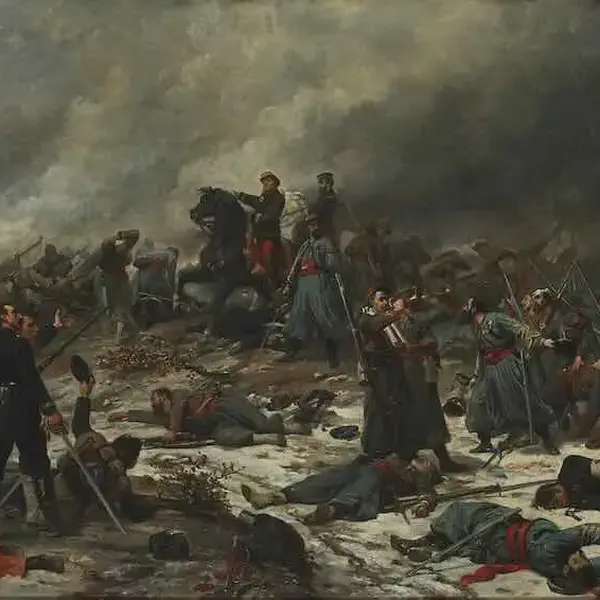
Battle of LeMans
January 10, 1871
The Battle of Le Mans in 1871 was a significant military engagement that took place during the Franco-Prussian War. Here are the key points about this battle:
Franco-Prussian War
The Franco-Prussian War was a conflict that occurred between France and the Kingdom of Prussia (along with its North German Confederation allies) from 1870 to 1871.
Context
By early 1871, France was facing a dire situation in the war. Paris had been under siege for several months, and the French government was in turmoil.
French Army
The French Army, led by General Louis-Antoine-Chretien Morimont, faced a decisive engagement near the city of Le Mans, located in western France.
German Forces
The German forces, under the command of General Edwin Freiherr von Manteuffel, had been successful in previous battles and sieges during the war. They were seeking to continue their advance.
Battle
The Battle of Le Mans took place on January 12, 1871. It was one of the last major engagements of the war. The French forces put up a determined defense, but they were ultimately defeated by the superior German forces.
Outcome
The German victory at the Battle of Le Mans was a significant blow to the already weakened French military. It hastened the end of the war.
End of the War
The Franco-Prussian War came to a formal conclusion with the signing of the Treaty of Frankfurt on May 10, 1871. The war resulted in the defeat of France, the capture of Emperor Napoleon III, and the loss of the region of Alsace-Lorraine to Germany.
The Battle of Le Mans played a role in the broader context of the Franco-Prussian War and contributed to the eventual defeat of France. The war’s outcome had far-reaching consequences, leading to the unification of Germany and the establishment of the German Empire, while it also had political and social repercussions in France, including the establishment of the French Third Republic.